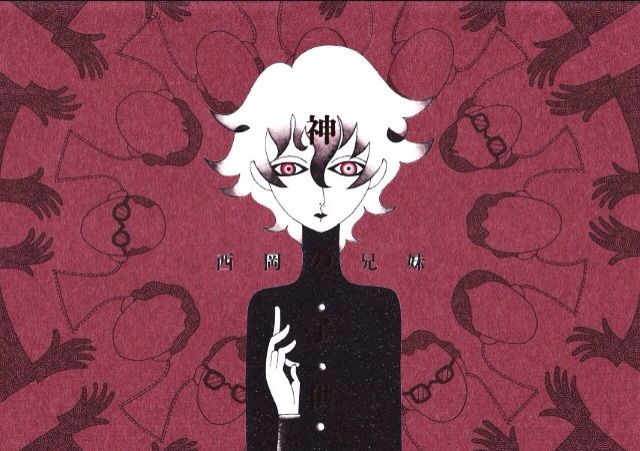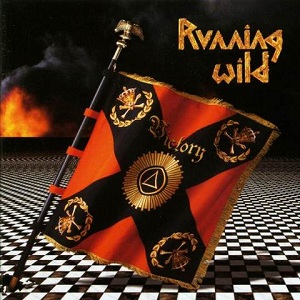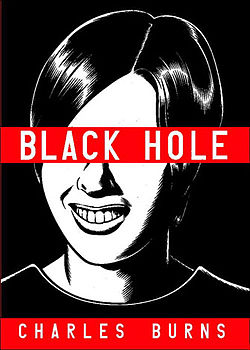 Donald Duck chops down a tree. Pluto goes for a swim at the beach. Most Disney shorts sound like absolutely nothing when you describe them. But when you see those bare vapours animated at 24 frames per second in bright Technicolor, something incredible happens. The Disney magic emerges, like a Golem shambling from mud (Walt wasn’t crazy about Jews, so a very goyish Golem). No piston does much on its own, but put four of them together and they move a car.
Donald Duck chops down a tree. Pluto goes for a swim at the beach. Most Disney shorts sound like absolutely nothing when you describe them. But when you see those bare vapours animated at 24 frames per second in bright Technicolor, something incredible happens. The Disney magic emerges, like a Golem shambling from mud (Walt wasn’t crazy about Jews, so a very goyish Golem). No piston does much on its own, but put four of them together and they move a car.
Kami no Kodomo “Child of God” is a manga that achieves extreme effects with simple ingredients: in this case, a simple Kafka-esque monologue from a serial killer. It was written and illustrated by Nishioka Kyoudai a brother-sister manga team who sometimes write as “Nishioka Brosis”.
This is pretty underground. Their art is so stylised it’s barely recognisable as manga: it looks like Klasky-Csupo mixed with Picasso and spliced with dangerous recessive genes from that “Worker and Parasite” short that was on the Simpsons. I think I will credit Nishioka Brosis as inventors of a new style: Worker and Parasite Manga.
The narrative a little confusing. At times it’s surrealist nonsense (the story begins with the protagonist being born from a woman’s asshole), at other times a cohesive and naturalistic plot unfolds. Kami no Kodomo is a little like ice at that critical moment when it starts to freeze: hard parts bobbing awkwardly in yielding water. I think this is an intentional effect, with parallels to Bret Easton Ellis’s America Psycho, where you start to wonder at the end whether the whole thing isn’t a bunch of crazy fantasies.
The main character grows up (I forget if he has a name), and goes to school. He’s pretty different. Is he even a he? The art style forces androgyny on everyone. Soon he gets to partake in a few crimes, both as onlooker and participant, and sort of falls into the habit of killing people. It’s like scratching an itch.
He attracts followers, all of which are sorta-maybe-pseudoboys, and they start their own little Manson family. There’s a homoerotic subtext at first, and soon it’s more of a supertext – tons of gay sex decorates the margins of the mass murders. The final few chapters of Kami no Kodomo are consumed by a tragic love arc worthy of a yaoi fanfic: I’d complain that it was out of place in the story, but that would require me to specify exactly what would be in place…
The manga is fascinatingly dark, and carries a real sense of shock and revulsion. Serial killers are usually boring, both in fiction and real life. This one isn’t, and not through any obvious gimmicks except the oldest one in the book: unity of effect. You can make a Golem from mud, but in case you don’t have the time or inclination, Nishioka Brosis have provided one ready-made.
 Running Wild is known as “that band with pirate-themed lyrics”, but that’s the least interesting thing about them. One of the early German power metal bands, they’re a striking case of musical taxidermy. They got their sound figured out in 1986, or dunked it in a tank of preservatives, and thirty years later they’re still playing it. No new ideas allowed!
Running Wild is known as “that band with pirate-themed lyrics”, but that’s the least interesting thing about them. One of the early German power metal bands, they’re a striking case of musical taxidermy. They got their sound figured out in 1986, or dunked it in a tank of preservatives, and thirty years later they’re still playing it. No new ideas allowed!
No other band has hewn to a sound this hard or this long. Helloween went through a Beatles period. Accept went through a hair metal period. Rage has played every single metal genre under the sun. But Running Wild now has a streak of thirteen albums that, on a sonic level, all pretty much sound the same. When Otto the school bus driver complains about bands ripping off Priest, this is the one he’s talking about.
Sadly, the quality level started dropping around 1995 or so. You can only photocopy your ass cheeks so many times before the printouts get all faded and weak, and that seems to be happening to Running Wild. Depending on who you ask, 2000’s Victory is either “the last vaguely good album” or “the first legitimately bad one.”
Myself, I like it. It lacks the epic, exploratory quality of their early 90s work, but it’s has a disciplined, martial aesthetic. The songs are short, punchy, and to the point, like parade drills. Part of it is songwriting. Part of it is the ultra-mechanical production, bolstered by a drum machine (Rolf Kasparek had the chutzpah to claim that the drumming was a friend who didn’t want to be credited).
Obviously there’s enough filler for a Tempurpedic mattress. I don’t know if I needed a Beatles cover. “The Fall of Dorkas”, “Silent Killer”, “Into the Fire”…boring, boring, boring. Running Wild has a unique talent for writing songs that induce narcolepsy without actually coming off as bad, and that side of the band is on full display here.
But I don’t care, because there’s enough highlights to wake you back up again. “When Time Runs Out” has an evocative main lead melody that reminds me of “Rock Hard, Ride Free”. “Return of the Gods” could be titled “Return of the Goods”.
The album’s two greatest cuts are “Hussar”, taking us from the Spanish main to a couple hundred miles inland, and “Victory”, where Rolf Kasparek displays his penchant for snaking, pentatonic alt-picking. Running Wild has an interesting conflict at its heart: they are generic as they come and unapologetic 80s revivalists, but they have a singular sound that’s entirely their own – nobody writes riffs like Running Wild, unless they’re trying to sound like Running Wild (and usually not even then.)
Don’t let a Beatles cover and a nonexistent drummer put you off. This is unequivocally one for the “good RW” table, and it’s not seated at the foot, either.
 If western culture is a woman, the 60s counterculture is a tramp stamp tattooed on her ass. It was exciting at the time. As she ages, she’s regretting it more and more.
If western culture is a woman, the 60s counterculture is a tramp stamp tattooed on her ass. It was exciting at the time. As she ages, she’s regretting it more and more.
She wanted to expand her mind. She got a drug problem that exists today, dissolving America’s inner cities like psychotropic acid. She wanted an alternative to the sexual mores of Leave it to Beaver. She got a sky-high divorce rate and a generation of kids raised in dysfunctional “all you need is love” relationships. She wanted new ways of seeing the world. She got Charles Manson and Jonestown. As Peter Fonda said, “We blew it.”
Black Hole is a graphic novel about a bunch of flower power children who are going through changes. Ch-ch-changes. As they immanentize the eschaton with acoustic guitars and reefer, their bodies are starting to transform, their skin melting like congealed fat before a blowtorch.
Sometimes the physical deformities are mild, even photogenic. One girl grows a cute demonic tail. Others look like the Elephant Man. One has pustules erupting on his face like the Yellowstone supervolcano. You’d call him pizza-face, but real pizzerias are never so generous with their toppings. Some have deformities that seem to change with unknowable and perhaps eldritch patterns.
Kid after kid comes down with the “bug”. They all become social outcasts, living on the fringes and stealing from convenience stores. One thing the graphic novel hammers home: being an outcast is overrated. Yeah, disconnecting yourself from the normies sounds great and romantic. In practice, it usually just means a lonelier cage.
Charles Burns art and writing is sparse, and leaves much unsaid. Sometimes it seems like there’s unwritten pages (or perhaps unwritten novels) hiding between his panels. That too seems to evoke a period where revelation was meant to come from within.
It’s confusing and not exactly accessible, partly because of its tone and content and partly because it draws a cultural aesthetic that sunk like Atlantis. The one slight umbilicus to the present (or at least the less distant part) is the character construction. It reminds me a little of that 90s style of cartooning: think Daria, or maybe the work of Mike Diana.
Despite its difficulty, Burns has created a comic about a subject that cannot be explained: the non-religious religions and thoughtless thought-processes of the 60s. It’s an absorbing read, though a hard one. We never find out what it was that caused the deformities: my perspective is that this is something that doesn’t need to be explained. All you need to do is witness it, or at least its aftereffects. Compare and contrast with the medieval plague. Was it cats? Rats? A cesspool of sin rising to the nose of a vengeful God? None of its victims came close to understanding it. But it didn’t matter. In the end, they still died from it.
 Donald Duck chops down a tree. Pluto goes for a swim at the beach. Most Disney shorts sound like absolutely nothing when you describe them. But when you see those bare vapours animated at 24 frames per second in bright Technicolor, something incredible happens. The Disney magic emerges, like a Golem shambling from mud (Walt wasn’t crazy about Jews, so a very goyish Golem). No piston does much on its own, but put four of them together and they move a car.
Donald Duck chops down a tree. Pluto goes for a swim at the beach. Most Disney shorts sound like absolutely nothing when you describe them. But when you see those bare vapours animated at 24 frames per second in bright Technicolor, something incredible happens. The Disney magic emerges, like a Golem shambling from mud (Walt wasn’t crazy about Jews, so a very goyish Golem). No piston does much on its own, but put four of them together and they move a car.

